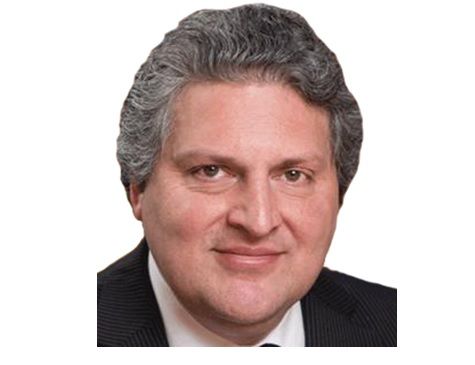Let’s be brutally honest here: no one really ever had any faith in his ability to get the job done. And frankly neither did anyone see him as a credible and confidence-inspiring CEO of a major bank. Harsh perhaps, but that’s how it was.
The industry narrative throughout his short tenure has been overwhelmingly one-dimensional. “He won’t last” has been the deafening mantra ever since he was appointed. The comments in the bank’s announcement were damning: there was some faint praise for Jenkins, but the sub-text was clear.
Deputy chairman Michael Rake (Sir Mike to his mates) said he’d reflected long and hard on the issue of group leadership and had discussed it with each of the non-executive directors. “Notwithstanding Antony’s significant achievements, it became clear to all of us that a new set of skills were required for the period ahead …” Hmmm.
Chairman John McFarlane – executive chairman pending the appointment of a new CEO – respected and endorsed the position of the board in deciding that a change in leadership is required at this time. It certainly didn’t take him long to get his knife out.
Mind you, Jenkins did always look out of his depth as he set about the admittedly not insignificant and multi-headed task of fixing the group’s financial fortunes and getting the ROE up to an acceptable level; ring-fencing the UK retail business and setting up an intermediate holding company in the US following regulatory diktat; rewiring the culture following some pretty egregious wrongdoing and some hefty fines; and figuring out what the hell to do with a monolithic investment bank that is world-class in many of the areas it operates in, but whose returns have been paltry.
The task or reforming Barclays’ investment bank is a bit like that children’s game of KerPlunk where every rod you pull out risks bringing the house crashing down
In cutting 25% of headcount, pruning business lines in global markets and in geographical locations, reducing allocated capital and slimming down the RWA stack, the task of reforming Barclays’ investment bank is a bit like that children’s game of KerPlunk where every rod you pull out risks bringing the house crashing down.
Barclays’ problem is like Deutsche Bank’s in that the investment bank is just too big to dick around with: in the first quarter, Barclays’ investment bank still accounted for 36.5% of group profit before tax. That’s lower than it has been but messing with it is dangerous to group earnings power.
So in fairness, Jenkins has had – as will his successor – a pretty daunting set of agenda items. But his own narrative has been confused and he has been dithering, indecisive and slow to act. And that’s clearly how the Barclays board saw things.
Incidentally, in being so dismissive of Jenkins, I do think the board should take a lot of blame for being complicit in his failures. His shortcomings were the board’s shortcomings. I’d written in 2012 that Jenkins’ appointment had been a case of faute de mieux following Bob Diamond’s departure. I had been similarly unimpressed by what I referred to as the board’s dreary appointment of David Walker as chairman in place of Marcus Agius. “Is this really the best that Barclays can do?,” I posed. In the light of events, it would appear not. Was Jenkins almost set up to fail, I wonder?
The search for a new CEO is on. The bank’s announcement tells us today’s developments don’t signal any major change in strategy. Why not, I ask myself? I also say to the board: what has changed in the style or nature of leadership between 2012 and now that has rendered Jenkins the wrong guy today and the right guy three years ago?
Leading a bank through a period of reform and restructuring against a complex re-regulatory and tough economic backdrop is arguably a different skill-set to leading a bank into and through a sustainable growth cycle. The decision levers are just different. It’s the difference between having an introverted more operational focus versus an outward-looking build focus. Barclays is stuck firmly in the former space so you’d think the role will fit someone with the stomach for and experience of internally focused operational matters
But McFarlane wants both. He says the bank needs to be “much more focused on what is attractive, what we are good at, and where we are good at it”. Err… OK. “We therefore need to accelerate revenue, costs and capital performance. We also need to become more externally focused and deal with the internal bureaucracy by becoming leaner and more agile. I have experienced good results in dealing with these matters elsewhere.” Thanks Mr chairman for stating the bleeding obvious.
In January, I’d tipped new group COO Jonathan Moulds as a potentially credible successor to Jenkins. I have no idea how the internal politics have played out since he started in February and whether that was just a fanciful idea, but he does tick a lot of McFarlane’s boxes.
There’s a long and growing line of banks with new CEOs – Credit Suisse, Deutsche Bank, Standard Chartered – and we’re entering a period of leadership uncertainty in the banking industry. In so many ways being a bank CEO these days is a thankless task, so whatever it does, the board needs to take its time.
● As a post-script, I had lunch with a very senior banker at Barclays recently and he asked me what I would do with the investment bank if I ran Barclays. For what it’s worth, here goes: I’d maintain the US as a full-service Wall Street investment bank; ditch the bulk of the equities and M&A/ECM franchise elsewhere – even in the UK where I’d maintain a lower profile, continue pruning the uneconomic bits of the FICC franchise but then go back to what Barclays always did best: maintain running a full-service international DCM, debt advisory and institutional debt franchise.
